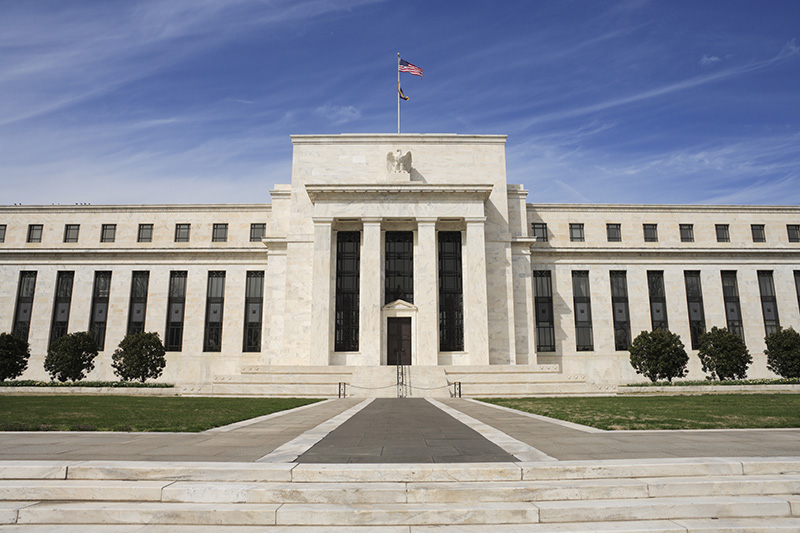Street Calls of the Week
Investing.com – As the countdown begins to the return of U.S. Congress to Washington on September 5, some experts have begun to question whether lawmakers’ grappling over the $19.8 trillion debt ceiling could pose an obstacle the Federal Reserve in moving forward with policy normalization.
Ever since the $19.8 trillion limit was hit back in March, the government has been using “extraordinary measures” to shuffle money and continue funding until an agreement is reached, but the U.S. Treasury has suggested that the deadline for a definitive accord will arrive on September 29, a mere 12 working days after Congress returns to session.
Although the Congressional Budget Office has suggested that deadline may be stretched a little longer, estimating that these measures will be exhausted and the government will not run out of cash until some point between October 3 and October 11, the Fed is scheduled for its next policy decision on September 20.
The uncertainty centers not just around a bipartisan deal being made, but also on the fact that the Republican majority is not fully united in its outlook.
Several Republican lawmakers are considered to be strict fiscal hawks that insist on any debt ceiling increase being tied to either outright government spending cuts or, at the very least, a slower rate of spending.
“History tells us these events don’t last long with politicians quickly realizing the need to get a bill passed,” ING chief international economist James Knightley wrote in a report.
“Nonetheless, such a risk makes it likely that the Federal Reserve will tread carefully so a government shutdown would make a further rate rise this year look less likely,” he warned.
“If the uncertainty builds in coming weeks, it could also mean that the Fed chooses to delay its balance sheet reduction strategy, although for now we still expect an announcement in September with an October start date,” Knightley added.
The opinion mirrored remarks out from Fed vice-chairman Stanley Fischer on Wednesday who recognized his uncertainty over announcing the start of balance sheet reduction at the September meeting.
Fischer told the Financial Times in an interview that there was a threat of a congressional showdown over the debt ceiling, although he stated that “in some deep sense people don’t believe the Congress and the administration will allow the United States default on its debt.”
The Fed vice-chairman further suggested that any market volatility was likely to be short-lived and noted that “there is also a desire to say that we have some confidence that the system is pretty damn stable”.
Fischer added that there would likely be a break between the actual announcement of the balance sheet reduction and its start date, so the Fed could pause if any unanticipated circumstances arose.
In similar comments, New York Fed president William Dudley, a permanent voting member seen to be most aligned with Fed chair Janet Yellen, suggested last Monday that the market’s prediction of the plan being announced in September were not “unreasonable”.
In response to the issue of the debt ceiling, Dudley downplayed the situation, stating that it does "not really" pose difficulties for the Fed as it could choose to "delay the actual start date" of reducing the portfolio.
